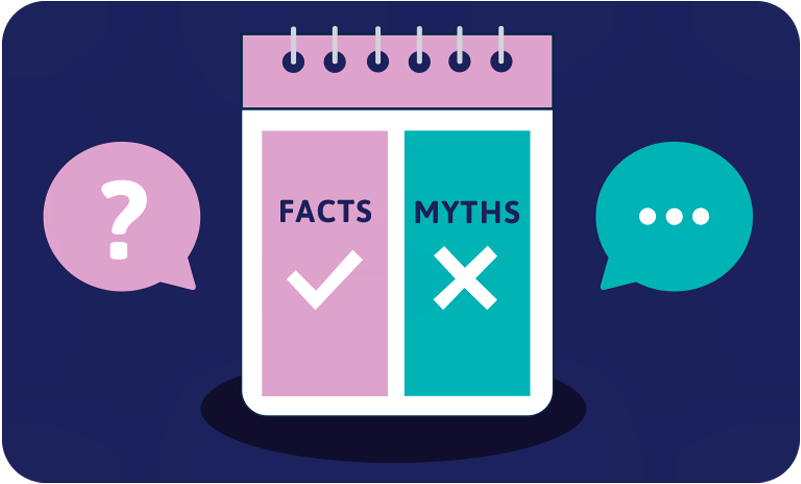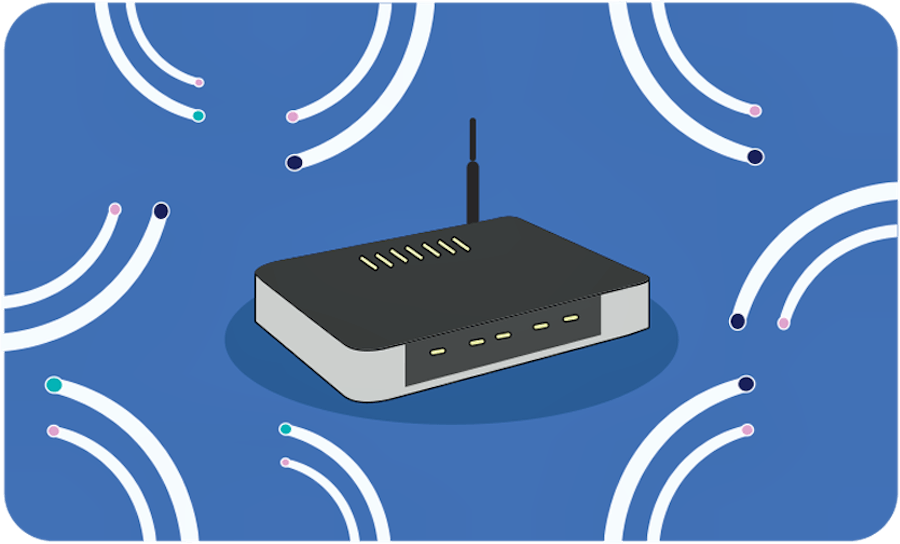Broadband Myths Busted: Debunking common misconceptions
No silly question or query here.

Despite being around for some time and being an integral part of life for many these days, there are still many misconceptions about broadband.
It’s understandable, though - there is much to know about the subject and everywhere seems to tell you something different.
We’re going to add to that but as an authoritative voice on the subject as the broadband mythbusters, debunking the common misconceptions and answering many people's questions about broadband.
Full-fibre is everywhere

This is a straightforward one as it is very false. While full-fibre is the latest broadband technology, providing unbelievably fast speeds, it is not available everywhere yet.
Swapping from FTTC (fibre-to-the-cabinet) to FTTP (fibre-to-the-premises) isn’t an easy overnight process, and as such, the number of homes with this newer technology sits at under 60% (as of December 2023).
FTTP isn’t a big upgrade on FTTC
This couldn’t be further from the truth. FTTP brings a strong and reliable fibre connection right from the telephone exchange to your home, as opposed to FTTC which uses a fibre cable halfway and a copper cable the rest.
With FTTC, you are looking at speeds of up to 80 - 100Mbps. While that is still good and is enough for some, FTTP offers mindblowing speeds between 100Mbps - 1Gbps. That is why it is the next generation of broadband.
All fibre broadband is expensive
.png?auto=format&w=900)
This isn’t completely true, but it also isn’t completely false. If we’re talking just fibre, then no it is not so much so anymore. Due to it not being the latest technology, it is available at a much more affordable price than it used to be.
Full-fibre is slightly more expensive, although usually not so much so for speeds around 100Mbps. It only starts to cost significantly more when you look at speeds of 500Mbps or more.
Every provider offers unlimited broadband
The simple answer is yes. Limited broadband is practically a thing of the past nowadays, with every provider knowing that to compete with the rest, they must offer truly unlimited broadband.
Previously, those that offered unlimited broadband came with a small caveat that it was to a point, and that if you passed it then you wouldn’t lose your broadband for the rest of the month but it would be slowed down somewhat during peak times.
Using more devices slows down your internet
This one is fairly true, as the more devices you have connected and being used simultaneously, the more traffic there is on the connection and thus it will be slower.
However, it doesn’t exactly kill it to the point where it is unusable. Modern connections are strong and reliable enough and offer high enough speeds that it can handle many active devices and still provide a good connection.
So while this one is true, it isn’t as true as it used to be.
A device is connected only when it is being used
With today’s modern technology where most appliances are digital and can be used via WiFi, a connection is constantly required so that the device can do things like run background maintenance and update outside of normal usage hours.
It won’t be a strong connection, mind you. Things like that won’t affect your overal speed much at all as it will be using a small amount of data to do what it needs to do.
Placing your router higher up improves the signal
Not necessarily, although it is recommended you try putting your router in different places to find the best connection. Higher up won’t always be best for every house but it could help.
Higher advertised speeds always equals better performance
Advertised speeds are theoretical maximums, and actual speeds can be affected by factors like network congestion and distance from the provider's infrastructure.
Essentially, when you see a broadband advertising these speeds, just know that that may not be representative of what would be achievable for you, and even if you can get that package, you still may not achieve that upper limit after installation.
You get the best deal by sticking with your current provider
While your current provider will always try to offer you a good deal to keep you as a customer, just know you may have better options elsewhere.
Almost all providers offer introductory offers for new customers, and a lot of the time they are brilliant value for money. Before you automatically renew your contract, be sure to take the time and see what you can get from other providers.
Switching providers takes a long time and is difficult to do

Switching isn’t always a difficult process, although not every provider is willing to be so serving to this request.
Most providers these days will be, though, streamlining the process so that you aren’t troubled too much.
WiFi extenders offer the same speed as the router itself
This is not true, regardless of what any extender may advertise. An extender is doing the same job your device does - speaking with the router to gain a connection - only it then works as another access point for you to connect your device to.
So the way it works is when you’re connected to an extender, your device is speaking to the extender which is itself then speaking to the router, so understandably there is going to be a bit of dropoff.
Free antivirus software provided by your ISP is enough

While it is better than none, bundled antivirus software may offer limited features and protection compared to dedicated third-party options, even if it is advertised and promoted by the provider as having it all.
Your best option as always is to do your research and compare what the provider is offering against other main-brand antivirus software services.
Paying more always means better
Unequivocally false. Much like many things, just because something comes with a higher price tag doesn’t make it better than the rest.
Nearly all broadband providers will put special offers on their packages, alternating between them all regularly so that they can maintain good deals for their customers.
This means you don’t have to fork out a lot of money for high-speed reliable broadband. Just wait for a special offer and you’ll be set!
The best way you can do this is by checking out Broadband Finder. We showcase many providers and regularly update the site with the best deals at the time, so be sure to check here if you’re looking for your next broadband package!
Find a Deal
Enter your postcode to see the latest offers in your area.
Latest News
Featured Guides
Broadband Speed Test
Find out whether you could be getting faster home broadband speeds. Our speed test will check your current broadband and let you compare with other speeds in your area.
Test your broadbandBroadband Usage Calculator
Answer a few quick questions and our broadband usage calculator will give you a data estimate for your household. Using this we'll recommend the best kind of deal for you.
Calculate.jpg)











